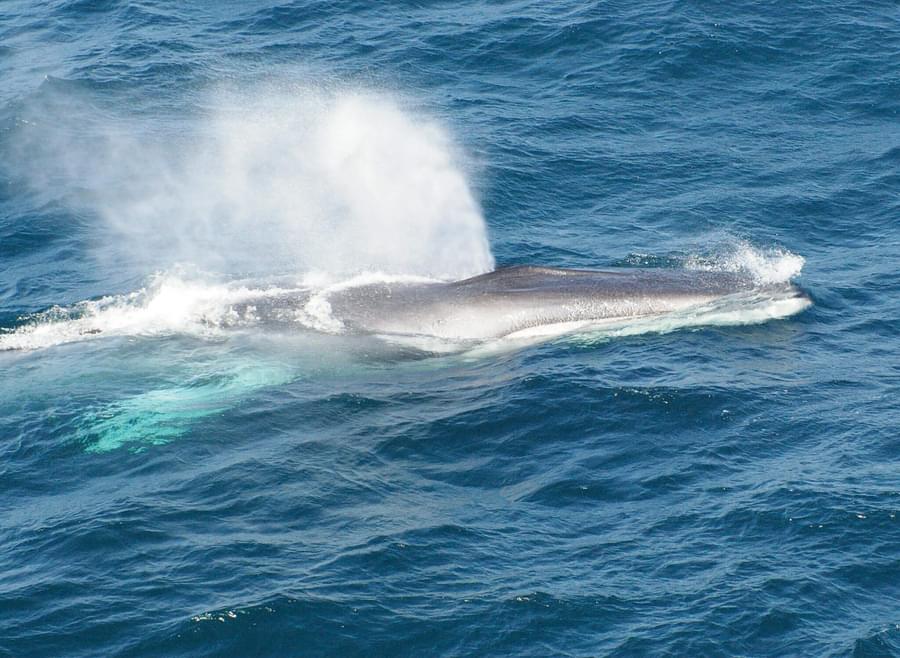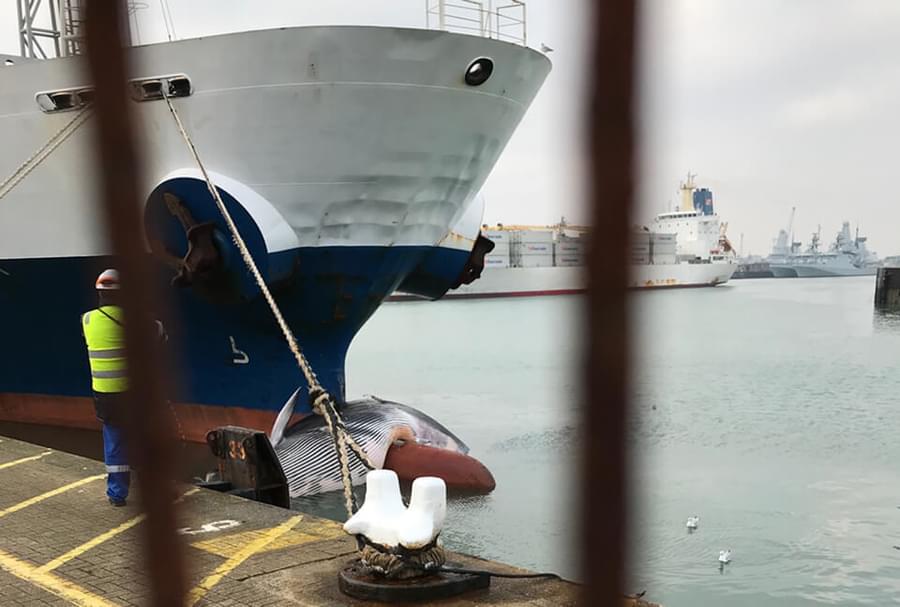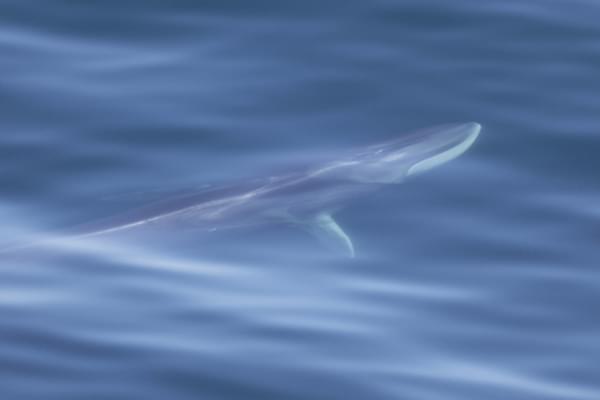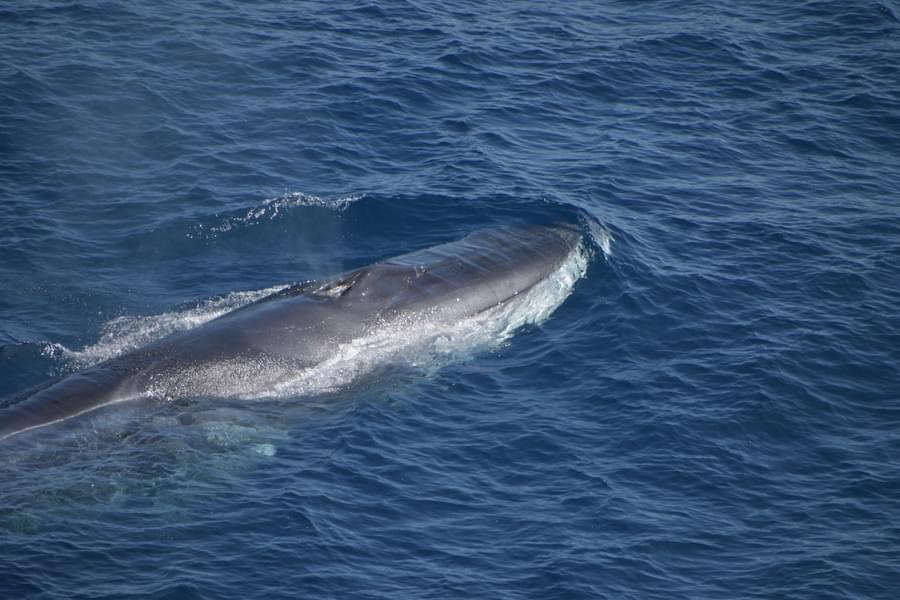What do we think of when we think of the Mediterranean? Sun? Seafood? A chance to get away from it all?
These are the same reasons that fin whales love the Med too.
Fin whales are found in oceans all over the world, but there are some that migrate to the Med year after year. They come for the warm waters, the copious amounts of food, and safety from the threat of orca attack or whaling. Think of it as their summer holiday.
There are also a group of around 2,500 fin whales which live in the Med all year round. We call this a resident population.
So what’s the problem? The Med is a good place to be for a whale – warm, plenty of food, and the number of naturally occurring threats is small.
The problem is the number of human-made threats.

The Mediterranean Sea covers just 0.8% of the world’s total ocean surface. However, around 13% of the world’s total shipping traffic goes through the Med. It is an enormously busy area for shipping, and the volume of traffic is expected to double in the next 15 to 20 years.
Not such good news for the fin whales.
Lots of shipping means an increased risk of vessel strike - the accidental hitting of a whale by a large ship. Large ships such as cargo, fishing or passenger ships create something called the bow null effect. The engines of these ships are usually found in the middle of the vessel. The large front, or bow, of the ship covers the sound made by the engines. If a whale is in front of a vessel, it is often completely unaware of the pending threat.
Fin whales are classified as vulnerable on the IUCN Red List of Threatened species, so any fin whale killed is a big loss to their numbers.

So what is being done to help fin whales in the Med?
Over the last 20 years, 39 SPAMIs (Specially Protected Areas of Mediterranean Importance) have been established by governments and wildlife organisations. These are areas of sea and coastline which are managed, to help conserve and protect the wildlife found there.
The largest of these is the Pelagos Sanctuary, an area of 90,000km2 covering parts of France, Italy and Monaco.
The Pelagos Sanctuary has a number of mitigation measures for ships to follow to look after the whales found there, including speed restrictions and even a code of conduct for whale watching tour operators.
The Pelagos Sanctuary and other SPAMIs in the Mediterranean are making a difference for fin whales in the Med by providing them an area where ships are restricted in their speed and movement, helping to reduce the risk of vessel strike.
Now we need these measures to become compulsory, and to be applied in more parts of the Med.

What are ORCA doing?
We work with a number of cruise companies to train crews on vessel strike mitigation. Our Ocean Conservationists and Marine Mammal Surveyors on board ships around the world carry out surveys where they record fin whales and other species they observe, helping us to identify key habitats. We also carry out extensive research into vessel strike.

What can YOU do to help fin whales?
You can support ORCA by becoming a member, and helping us continue working towards our vision of oceans alive with whales and dolphins – and a Mediterranean Sea alive with fin whales.

